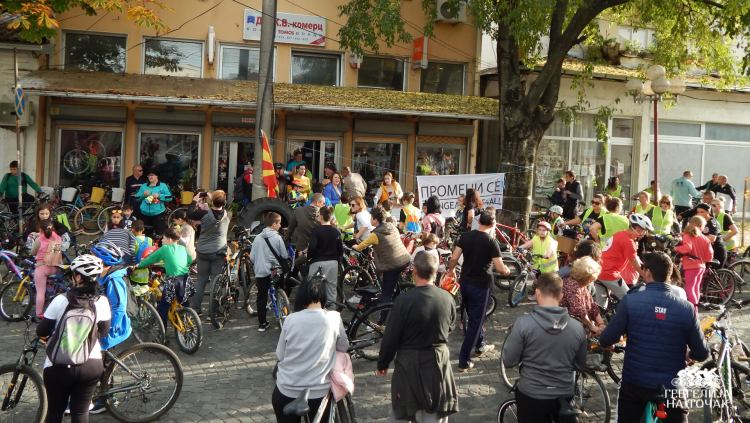Healthy and clean environment is one of the fundamental conditions for quality life of all citizens. Quality life contributes a lot to the proper growth and development of the individual but also speaks to the values nurtured by society as a whole. Clean air is one of the main components in our country that has high values in recent decades. Air pollution in the country is a continuous and major problem that intensifies every year and in excessive scale and has its greatest rise during the winter months. Air pollution is the biggest cause of premature death and the increasing number of diseases in humans. In fact, air pollution is the greatest risk to human health in the field of the environment.
Efficient use of energy or energy efficiency could primarily be discussed as a matter of people’s awareness and their willingness to change established habits towards more energy efficient solutions in everyday life. Reducing air pollution caused by households through the use or implementation of energy efficient devices and measures is based on several factors. Household pollution is high, and as one of the potential target groups are socially vulnerable families who do not have the opportunity to contribute to improving the environment on their own, and this indirectly contributes to the deterioration of air quality for everyone else. Investing in energy efficient products/measures in housing facilities such as: insulation, energy efficient heating bodies and home appliances, solar collectors for hot water, photovoltaic systems, and so on, directly reduces unnecessary energy consumption. In this way, households have direct financial savings. In addition to the rational usage of energy and saving money, energy efficient products also improve people’s living standard, quality of life and reduce greenhouse gas emissions.
The main purpose of this report is to make an analysis of three pre-targeted levels, i.e. target groups, which will be beneficiaries but also factors in implementation of the project Tackling Air Pollution in the City of Skopje to address the problem of air pollution in the country. The first target group in the first survey are retailers selling heating devices, surveyed in the entire territory. The second target group are the citizens of Lisiche, a territory that is marked as a significant field of action by UNDP in this area. Finally, the third target group consists of the civil society organizations in the country that operate in the field of air pollution at the national level.
The results obtained from the conducted surveys, i.e. researches created databases through which it will be possible to analyze many different aspects, cause-effect relationships and factors in the field of air pollution.
The opinion of 17% of retailers is that the main motive for buying a certain heating device is because they pollute the air less.
In general, the inverter air conditioner is the product for which there is the greatest demand on the market at the moment – this is the position of 51% of retailers. Second in demand are pellet stoves (30%), and third are heat pumps (10%).




